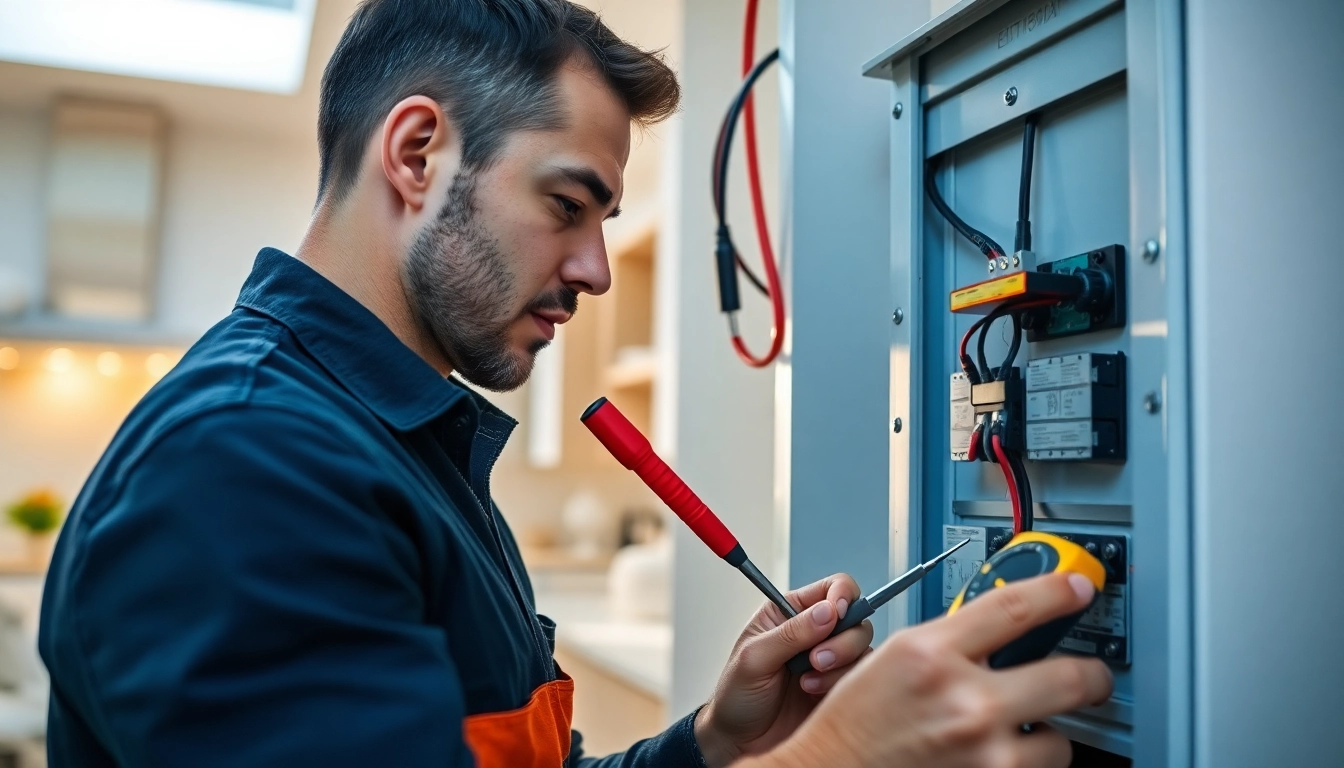Understanding Electrical Panel Upgrades
In an age where our homes are outfitted with myriad electronic devices, the importance of a robust electrical system cannot be overstated. One key component of this system is the electrical panel, which acts as the central hub for electricity distribution throughout your home. An Electrical Panel Upgrade is often necessary to meet these growing demands, but understanding what triggers the need for such an upgrade and its implications is pivotal. This comprehensive guide will take you through what an electrical panel is, why upgrades are crucial, and the benefits associated with them.
What is an Electrical Panel?
The electrical panel, often referred to as a breaker box or service panel, is a crucial component that distributes electrical power from the utility line to various circuits throughout your home. Typically located in a basement, garage, or utility room, this unit houses circuit breakers or fuses that protect your home’s wiring and appliances from overload. The panel also includes a main breaker that controls the flow of electricity to the entire system.
Importance of Electrical Panel Upgrades
An electrical panel upgrade can significantly enhance the efficiency, safety, and capacity of your home’s electrical system. As we introduce more energy-intensive devices like smart home technology, electric vehicles, and HVAC systems, the existing panel may struggle to meet these demands. Upgrading ensures that your home is not only compliant with current safety standards but also fully equipped to support future needs.
Common Signs That an Upgrade is Needed
- Frequent Tripping of Circuit Breakers: If circuit breakers are constantly tripping, it is a sign that your panel is overloaded and unable to handle the electrical load.
- Old Panel Models: Older panels, especially those manufactured before 1990, often don’t meet current electrical codes and may pose safety hazards.
- Flickering or Dimming Lights: This often indicates issues with the electrical supply, suggesting that your panel might be struggling to keep up.
- Installation of New Appliances: Upgrading appliances, especially those requiring significant power, signals the need for a system that can accommodate these new demands.
Benefits of Upgrading Your Electrical Panel
Increased Electrical Capacity
One of the primary benefits of upgrading your electrical panel is the increased amperage capacity. Most modern homes require at least a 200-amp service to handle the power needs of today’s electrical devices. Upgrading from a 100-amp to a 200-amp panel allows for the safe distribution of increased power demand, accommodating modern appliances and future expansions.
Improved Safety Standards
Safety is a paramount concern when it comes to electricity. Older panels may not meet current National Electrical Code (NEC) requirements, and outdated wiring can pose serious risks, including electrical fires. By upgrading your electrical panel, you ensure compliance with the latest safety standards, significantly reducing potential hazards in your home.
Support for Modern Appliances
As technology evolves, so do our electrical needs. Many modern devices, including electric vehicle chargers and energy-efficient appliances, require higher levels of power to function optimally. An upgraded electrical panel can keep up with these demands, providing adequate power and preventing overloading or electrical outages.
Factors Influencing Electrical Panel Upgrade Costs
Type of Electrical Panel
Electrical panels come in different types and prices, with the choice between a standard circuit breaker panel and a load center significantly affecting costs. Upgrading to a higher-end panel, such as one with smart technology features, will naturally increase your expenses.
Labor and Installation Costs
The complexity of the installation also plays a crucial role in determining the overall upgrade cost. If your home’s wiring is outdated or incompatible with the new panel, additional work will be required, leading to increased labor costs. It’s important to get quotes from multiple contractors to ensure you’re not overspending on labor.
Additional Features and Codes
Depending on your local regulations, installing features like surge protection, sub-panels, or GFCI outlets may be necessary during an upgrade. Each additional feature will contribute to the overall cost, so understanding your local electrical codes can help you budget appropriately.
Steps to Plan Your Electrical Panel Upgrade
Consulting with Professional Electricians
It is essential to consult with a certified electrician when planning your electrical panel upgrade. A qualified electrician will assess your current system, evaluate your power needs, and recommend the most appropriate panel size and type for your home.
Obtaining Necessary Permits
Upgrading your electrical panel usually requires permits to ensure compliance with local building codes. Your electrician can usually assist with this process, but it is important to confirm that all necessary permits are obtained before work begins to avoid fines or safety issues.
Timeline and What to Expect
The timeline for an electrical panel upgrade can vary but typically takes a day to complete, depending on the complexity of the installation. During this time, you may experience outages, as electricity will need to be temporarily shut off while the installation occurs. Having a plan for this downtime is advisable, including charging devices and securing food items that require refrigeration.
After the Upgrade: What Comes Next?
Post-Upgrade Safety Checks
Once the electrical panel has been upgraded, a thorough safety check is a vital step. This includes verifying that all circuits function correctly, ensuring that grounding systems are properly set up, and confirming that all connections are secure.
Maintaining Your New Electrical System
After upgrading, regular maintenance is crucial for ensuring the longevity and safety of your system. This can include periodically checking circuit breakers, inspecting for any signs of wear and tear, and updating your home’s electrical plan as new appliances and technologies are introduced.
Potential Rebates for Electrical Panel Upgrades
Homeowners may qualify for rebates or tax credits related to electrical panel upgrades, especially if they are making improvements that enhance energy efficiency, such as installing smart panels or enabling electric vehicle charging. Researching local incentives can help offset some of the costs associated with the upgrade.


